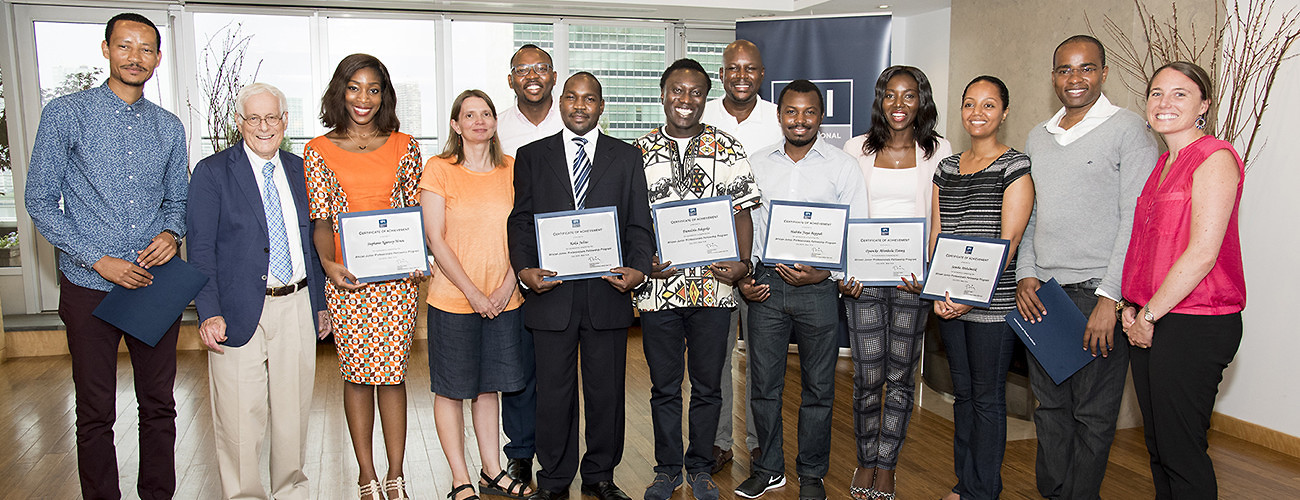The seventh annual African Junior Professionals Fellows program from July 6-30 2015 provided a further opportunity to deepen the relationship between the emerging generation of young African leaders and the United Nations. Ten graduate students from five African countries – Nigeria, Cameroon, Uganda, Ethiopia and Kenya – met with a broad cross section of UN officials and independent policy analysts to assess the roles of the United Nations in seeking to achieve durable economic development and the resolution of continuing conflicts on the Continent.
Under the leadership of Professor Funmi Olonisakin at King’s College London and Professor Godwin Murunga at the African Leadership Centre in Nairobi, the African Junior Professionals Program, which began in 2008, has the objective of training a new generation of African men and women to work in Africa’s leading continental and regional organizations and universities for the continent’s political, social and economic development. To date over 90 young Africans have graduated from this program of whom 51 have participated in the IPI summer program.
In conjunction with the Conflict, Security and Development Group, King’s College London, IPI has developed this annual summer training program to enable young African professionals to understand in greater depth the role of the United Nations in addressing the continent’s major development, political, and security challenges from multiple perspectives. This year the program focused in particular on the African perspective – meeting with Ambassadors from Nigeria and Angola, two of the three African member states on the Security Council, and Ambassador Tete Antonio, the Permanent Representative of the African Union to the United Nations. Students held in-depth discussions with key representatives in the UN Secretariat – including officials and staff in DPA, DPKO, UN Women, OCHA and UNDP – as well as with policy analysts from Security Council Report, CPPF, ICTJ and the Council of Foreign Relations who track African peace and security issues closely.
The main theme from these meetings is African intent to assume greater leadership and direction in setting the agenda and priorities of the United Nations and African continental and regional organizations in coming years. While welcoming the continuing evolution of the African Union-United Nations roles in peace operations (eg, in South Sudan, Mali and the CAR), students heard from their interlocutors that African leaders intend to be much more in the lead in setting continental and regional priorities for political and military engagement in resolving ongoing conflicts or in dealing with contentious issues such as Presidential elections and constitutional revisions – eg, in Burundi and probably in the DRC and Uganda in 2016. The African Union and the United Nations have established an ongoing partnership and will continue to play an important role together in promoting peace settlements, agreeing on deployment of international peacekeepers and implementing the 2015-2030 Sustainable Development Agenda. There was also a realistic recognition that the emerging African leadership will have to reduce Africa’s dependency on the European Union and the United States if these aspirations are to be met.
For the Fellows as well as IPI and UN staff this program is an important shared learning experience. As the Fellows have learned more about the United Nations and the New York based policy community, we learn a good deal about Africa’s challenges and policies from the Fellows’ perspective. It is truly a two way experience among today’s practitioners and tomorrow’s leaders.








